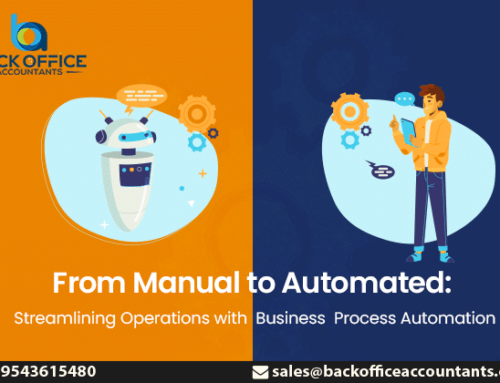Long-term survival in the restaurant industry requires financial success due to its highly competitive and dynamic nature. Restaurant owners and managers face many challenges in restaurant accounting, like balancing inventory and employment expenses, maximizing revenue, and meeting tax and regulatory obligations, which can make achieving financial success seem quite difficult.
Not being able to measure the performance of a restaurant can hinder its management and success. This is the specific area where the expertise of accountants is required. Accountants are expert financial professionals who can provide restaurants with valuable counsel and perspectives to assist them in achieving financial prosperity.
This article will delve into various strategies that accountants can employ to assist restaurants in achieving financial prosperity.
-
Budget development and forecasting performance:
Restaurants can benefit from the assistance of accountants in creating a comprehensive budget that determines their projected costs and income sources. This financial plan can serve as a navigational tool for the restaurant’s financial choices throughout the year.
Moreover, restaurants can rely on the expertise of accountants to anticipate their financial standings by estimating forthcoming profits and costs, taking into account previous achievements and market patterns. The knowledge acquired can serve as a tool to pinpoint the specific aspects that require improvement in the restaurant to attain monetary prosperity.
-
Performance tracking:
Professional accountants are capable of aiding restaurants in monitoring crucial financial benchmarks known as key performance indicators (KPIs) that are fundamental for their prosperity in the industry. KPIs serve as indicators that gauge the level of effectiveness of the restaurant in terms of sales, expenses, and profitability.
Accountants can pinpoint the weak spots of the restaurant’s financial performance and devise a strategy for improvement by monitoring key performance indicators. As an example, a food specialist in accounting can monitor the restaurant’s expenditure on food with its total sales.
If the expenses related to food are consistently exceeding industry standards, the accountant can suggest options to decrease the costs, such as revising supplier agreements or minimizing wastage.
-
Cash flow management:
Effective cash flow management is essential to the success of every business, including restaurants. They can seek the assistance of accountants in managing their finances by crafting a projection of their cash flow that will detail both anticipated inflows and outflows and, with this data, one can detect possible deficits in cash flow and take immediate action to resolve them in advance.
In case of a projected deficit in the restaurant’s cash flow, the accountant might suggest deferring expenditures that are not essential or renegotiating with the vendors for extended payment timelines. They also keep track of the accounts receivable practices and make sure the credit amount comes back well within time.
-
Managing inventory costs:
For the majority of restaurants, inventory expenses represent a substantial cost. Restaurants can seek assistance from accountants to efficiently handle their expenses related to inventory by creating a well-organized framework to monitor levels of inventory along with associated costs.
By utilizing this data, it is possible to detect patterns and arrive at well-informed judgments concerning the handling of inventory. Suppose the restaurant has steadily high levels of inventory; in that case, the accountant might suggest decreasing those levels, aiming to release funds or seek to negotiate improved payment conditions with the suppliers.
-
Controlling employment costs:
Restaurants incur noteworthy expenses through their employment costs. Assisting eateries in handling their workforce expenses, accountants can devise a framework to monitor employment expenditures and efficiency. This data can be utilized to pinpoint regions where employment expenses are excessive and implement measures to rectify the situation.
If a restaurant is continuously incurring high employment costs, the accountant may suggest decreasing the number of employees or re-negotiating employment agreements as a potential solution.
-
Adherence to tax and regulatory requirements:
Accountants are useful in assisting restaurants to abide by tax and regulatory rules. One must stay up-to-date on tax regulations, complete and submit tax returns, and guarantee the restaurant complies with relevant laws and regulations.
Restaurants must collaborate with their accountants to ensure compliance with tax and regulatory obligations as non-compliance could lead to substantial fines and penalties. Back-office accounting firms are very much proficient in dealing with such cases of proper compliance with the tax and regulatory measures of the respective countries.
Ultimately, accountants are crucial in assisting restaurants to attain fiscal triumph. Accountants can assist restaurants in making well-informed financial decisions by offering guidance concerning the creation of budgets, overseeing key performance indicators, managing cash flow, inventories, and employment costs, optimizing income streams, and ensuring compliance with regulatory and tax requirements.
Restaurants can achieve financial success by seeking the guidance of an accountant, who can provide valuable insights into their financial performance, identify areas that require improvement, and suggest proactive solutions.
Back office accountants is a back office accounting firm that has served many restaurant owners for the past years. They have been in this field and are emerging experts. Do contact them in case of any need regarding back office accountings.







